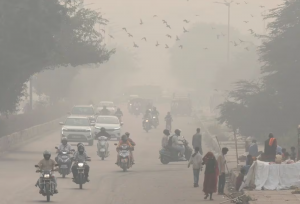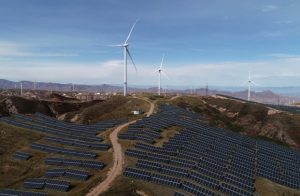Top oil-selling countries are making a “concerted effort” to slow down — or even “block” — an attempt to reach a consensus on a global fossil fuel phaseout at the upcoming COP29 summit in Azerbaijan, the Financial Times has reported.
The countries — which include Saudi Arabia, Russia and Bolivia — are pushing back against an earlier consensus on cutting fossil fuels and increasing renewable energy capacity, the FT report said citing negotiators from five western countries.
They were referring to a pledge at the COP28 in Dubai last year — formally known as the UAE Consensus — where around 200 nations agreed to phase out their fossil fuel use by 2050.
Also on AF: Huge Storms Battering China, Causing Chaos in Southeast Asia
Negotiators told the FT that they had been applying pressure on Azerbaijan to continue the conversation on the UAE Consensus, saying COP29 “won’t be a success if we don’t also talk about the process of implementing [fossil fuel] mitigation.”
But considering Azerbaijan’s economy is heavily dependent on oil and gas exports, the country has been reluctant to push the matter.
The FT cited an incident from earlier this month — showing Azerbaijan’s reluctance — where the country’s lead climate negotiator made no specific mention of fossil fuels or renewable energy in a seven-page speech about recent talks in capital Baku.
One negotiator also told the FT that large greenhouse gas emitting nations within the G77 group of developing countries were likely to use the logjam in climate finance discussions to “block any meaningful progress on mitigation.”
Despite four days of dialogue last week, international negotiations on climate finance for developing countries have been unable to reach a deal.
Developing countries like India and China say wealthy nations must pay them $1 trillion until 2050 to support their transition to renewables and also handle the financial costs of climate change. They say the amount is needed to account for rich nations’ historical emissions and per capita emissions of carbon dioxide.
Wealthy nations earlier committed to provide $100 billion a year until 2025 — a pledge they are still behind on.
Meanwhile, the United States and the European Union say they want oil-rich Gulf countries and China — now the world’s second-largest economy — to be added to the pool of countries expected to shell out for climate finance, in light of their share of carbon emissions.
Gulf states and China have, however, rejected that call.
View this post on Instagram
- Vishakha Saxena
Also read:
‘Wealthy Nations’ Fossil Fuel Deals Threaten a Global Catastrophe’
China, India Ask Rich Nations For ‘Trillions’ in Climate Finance
Extreme Weather Cost China More Than $10 Billion In July Alone
China to Set Emission Quotas for Industries, Economic Planners
Continuing Rise of Methane Emissions Worrying Top Scientists
Pacific Islands Want ICC to Make Ecocide a Criminal Offence
Indian Oil Tycoon Says New Energy Will Earn As Much As Refineries
In a First, Top Bank Hands Out Loan For Carbon Removal Credits
India Generates Fifth of World’s Plastic Emissions – SCMP
Oil Producers, Carmakers Knew of Climate Risk in 1954 – Guardian
























